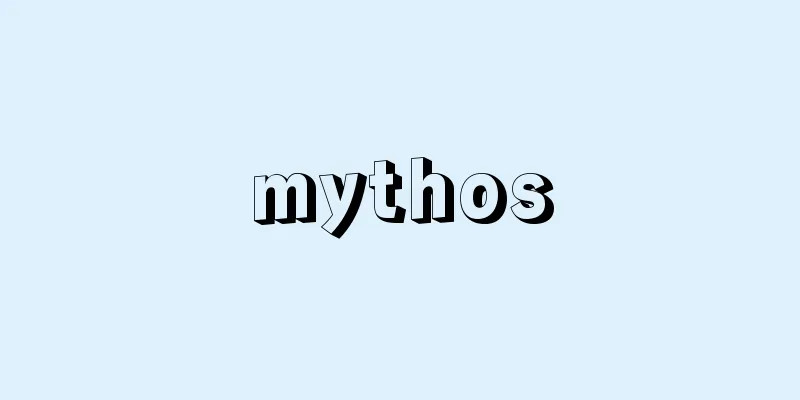mythos

|
... By the way, when watching a play and assimilating to what is being performed, the first issue is whether it can be believed, that is, the possibility of intuitive, sensory, and intellectual acceptance and participation within the audience. Moreover, it is not just whether the story being performed (Aristotle called it mythos and considered it the most important element of tragedy) can be believed, but whether it is presented in a way that makes it believable. For example, Mallarmé argued that the effect of Wagner's music dramas is a kind of religious nature, and that the audience is led by the action of symphony music's return to the origins to unite with the myths and their images that unravel the mysteries of the origins of the Germanic peoples. Even if theater does not create a system that explicitly replaces religion, it is a kind of "act of faith." ... From Greek Mythology…The Romans adopted the stories of Greek gods by transferring them to similar Roman gods, and used them as nourishment for literature and the visual arts. Later, Europe received Greek and Roman mythology through the Renaissance, large and small. One proof of the strength of this tradition is that all modern Western languages that express "myth" are derived from the Greek word mythos. Our word "myth" is nothing more than a translation of mythos through modern Western languages. … From Greek Literature...His teacher Plato declared that poetry was nothing more than a false shadow from the viewpoint of philosophy, which aims to discover the truth, but Aristotle showed that the creation and enjoyment of literature is rooted in the joy of human life and can be the starting point of all sciences. From a moral point of view, Plato criticized poetry and oratory as the source of social evils, but Aristotle said that the structural understanding of human actions (mythos), which can be said to be the soul of literature, is the superior way for humans to understand their own lives. He also determined that no wisdom or sound argument can demonstrate practical value unless it is spoken according to the laws that know the human heart and govern one's own words, and he systematically elucidated those laws (rhetoric). ... *Some of the terminology explanations that mention "mythos" are listed below. Source | Heibonsha World Encyclopedia 2nd Edition | Information |
|
… ところで,舞台を見てそこで演じられていることに同化するには,まずそれが〈信じられるかどうか〉という,観客の内部の直観的・感覚的であると同時に知的でもある受容・参加の可能性が問題になるだろう。しかもそこで演じられている〈物語〉(アリストテレスはそれをミュトスmythosと呼んで悲劇の最重要の要素とした)が信じられるか否かだけではなく,それが信じられるような仕方で提示されているかどうかが問題になる。たとえばマラルメは,ワーグナー楽劇の作用は一種の宗教性を帯びるとして,ゲルマン民族の始原の謎を解きあかす〈神話〉とその〈形象〉へと,交響楽の始原回帰の作用に導かれて観客=聴衆が合体するのだと説いたが,このようにあからさまに宗教にとって代わる仕組みを作り出した場合でなくとも,演劇は一種の〈信仰の業(わざ)〉である。… 【ギリシア神話】より…ローマ人はギリシアの神々についての物語を相似たローマの神々の上に引き移すことで,そっくりこれを受け入れて,やはり文学,造形芸術の糧としたし,後のヨーロッパは大小さまざまな規模のルネサンスによって,このギリシア・ローマ神話を受け取った。その伝統の強大さの証の一つは現代西欧諸語で〈神話〉を表す言葉はことごとくギリシア語のミュトスmythosに由来することにうかがい知れる。われわれの〈神話〉の語も近代西洋語を通してのミュトスの翻訳語にほかならない。… 【ギリシア文学】より…彼の師プラトンは,真理究明を目ざす哲学の見地から見れば,詩文は虚妄の影に過ぎないと断じたが,アリストテレスは文学の創作と享受こそ人間の生の喜びに根ざし,あらゆる学の出発点たりうることを示す。師プラトンは,道徳的見地から見て,詩文・弁論は社会的諸悪の源泉であると批判したが,アリストテレスは,文学の魂ともいうべき人間行為の構造的把握(ミュトスmythos)こそ,人間が己の生を理解する優れた道である,という。また彼は,いかなる英知も正論も,人の心を知り己の言葉を律する法則によって語られることがなければ実践的価値を示しえない,と措定し,その法則(修辞学)の体系的解明を遂げる。… ※「mythos」について言及している用語解説の一部を掲載しています。 出典|株式会社平凡社世界大百科事典 第2版について | 情報 |
>>: Mytilene (English spelling)
Recommend
Aix-en-Provence (English spelling)
Aix is an ancient city in the Bouches-du-Rhône d...
Copper coin - Dosen
Coinage made from copper or bronze began to be use...
gathering
...The endpapers should always be printed vertica...
Zangetsu - Zangetsu
[1] [noun] The moon that remains in the sky until ...
Tsukigata [Village] - Tsukigata
A village in Nishikanbara County, central Niigata ...
Hemony, F. (English spelling) HemonyF
...Instruments with metal lumps arranged in a key...
Daseinsanalyse (English: Daseinsanalyse) German
A method of psychopathology. It has been develope...
The Battle of Ipsos - The Battle of Ipsos
An important battle during the War of Succession, ...
Actinium
Ac. Atomic number 89. Electron configuration [Rn]...
Battle of Hoji
A battle between the Hojo and Miura clans that br...
Mr. Masato Okinaga - The Doctor of the Okinaga Nyu
…In the Shinsen Shojiroku, Okinaga Masato is list...
Kue - Longtooth grouper
A marine fish belonging to the order Perciformes,...
More than an audience - Omemieijo
〘 noun 〙 In the Edo period, among the samurai who ...
Indianapolis 500 Mile Race
⇒Indy 500 Source: About Shogakukan Digital Daijise...
Stanev, E.
…Official name = Republic of BulgariaRepublika Bâ...









